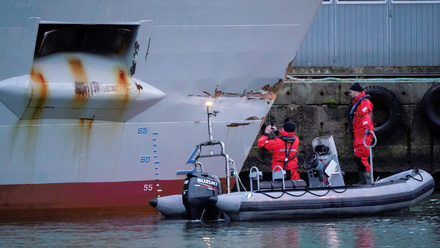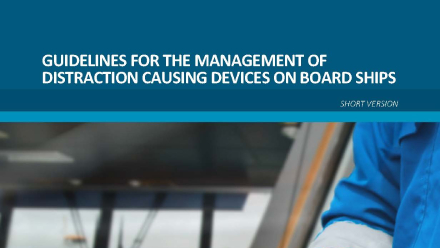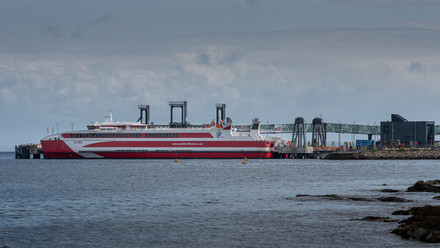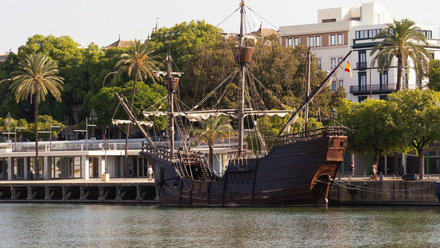First Sea Lord invites IMarEST Fellow to write book chapter
Gordon Meadow, SeaBot Maritime CEO and FIMarEST, examines how humans and technology coexist seamlessly in ‘Maritime Britain in the 21st Century’
Meadow, a Chartered Marine Technologist and a member of the Maritime Autonomous Surface Ships Special Interest Group (MASS SIG), is also CEO at SeaBot Maritime, a company using innovation to enhance learning products and services in the industry.
His journey began with a fascination of the relationship between humans and technology where Meadow worked on academic research about these interactions. Projects involved utilising telepresence to explore remote engineering through synthetic environments such as digital twins, the use of blended reality for enhanced situational awareness, and evenexperimenting with VR for teaching.
He brings his 30 years of experience in the maritime sector to a new book Maritime Britain in the 21st Century, to which he was specially invited to contribute by the First Sea Lord Admiral Sir Ben Key.
The book explores how the seas and oceans have added to the country’s prosperity but also left it wide open for attacks from overseas through history, while also looking at how the protection of our waters is more important than ever with plastic pollution and climate change. The books further explains the role of seas and oceans in our security, sustainability and prosperity, but laments the lack of public awareness.
Meadow was invited to contribute a chapter about humans and technology, and he tells us more about the process and what he felt was important to say.
What was it like to be asked for a significant contribution to Maritime Britain in the 21st Century?
Really cool. Receiving a request from the First Sea Lord team, as you can imagine, is an incredible honour. The editorial team was extremely supportive, they ensured all the contributors produced content both comprehensive and accessible to a wide audience. My chapter allowed me to contribute to a pivotal discussion on the future of our industry, emphasising the critical role of human-technology partnerships.
With over 30 years of experience in the maritime sector, how did you decide what to contribute to the new book?
The chapter is situated in the [topic of] remote and autonomous maritime systems. But regardless of the technology, a consistent and key theme in the chapter is in exploring the impact of our choices in the evolution of our technology adoption. Innovation should be viewed through an emancipatory lens, creating an ecosystem where human skills, attributes and technological advancements work in harmony.
I aimed to demonstrate how technology can be an emancipatory tool, fostering a balanced ecosystem where human expertise and technology coexist seamlessly. The evolution of human-machine interaction requires intuitive interface designs and specialised training programmes that empower operators to work alongside technology effectively.
What do you feel is the future of UK maritime and how can British people get engaged?
Navigating the future of human-technology interaction necessitates a multidisciplinary approach involving technologists, ethicists, policymakers, and the public. Establishing ethical frameworks and guidelines is crucial to address the challenges and harness the benefits of emerging technologies. Public discourse and participation are essential in shaping the development and implementation of technology in a manner that aligns with societal values and promotes the common good.
The evolving relationship between humans and technology presents both extraordinary opportunities and significant ethical challenges. By addressing these considerations thoughtfully and proactively, society can ensure that technology serves to enhance human wellbeing and preserve fundamental human values.
Maritime Britain in the 21st Century is available from Amazon and other outlets to be found online.
Join IMarEST’s MASS SIG.
Image: close up of the English Channel; credit: Unsplash.
Tell us what you think about this article by joining the discussion on IMarEST Connect.






